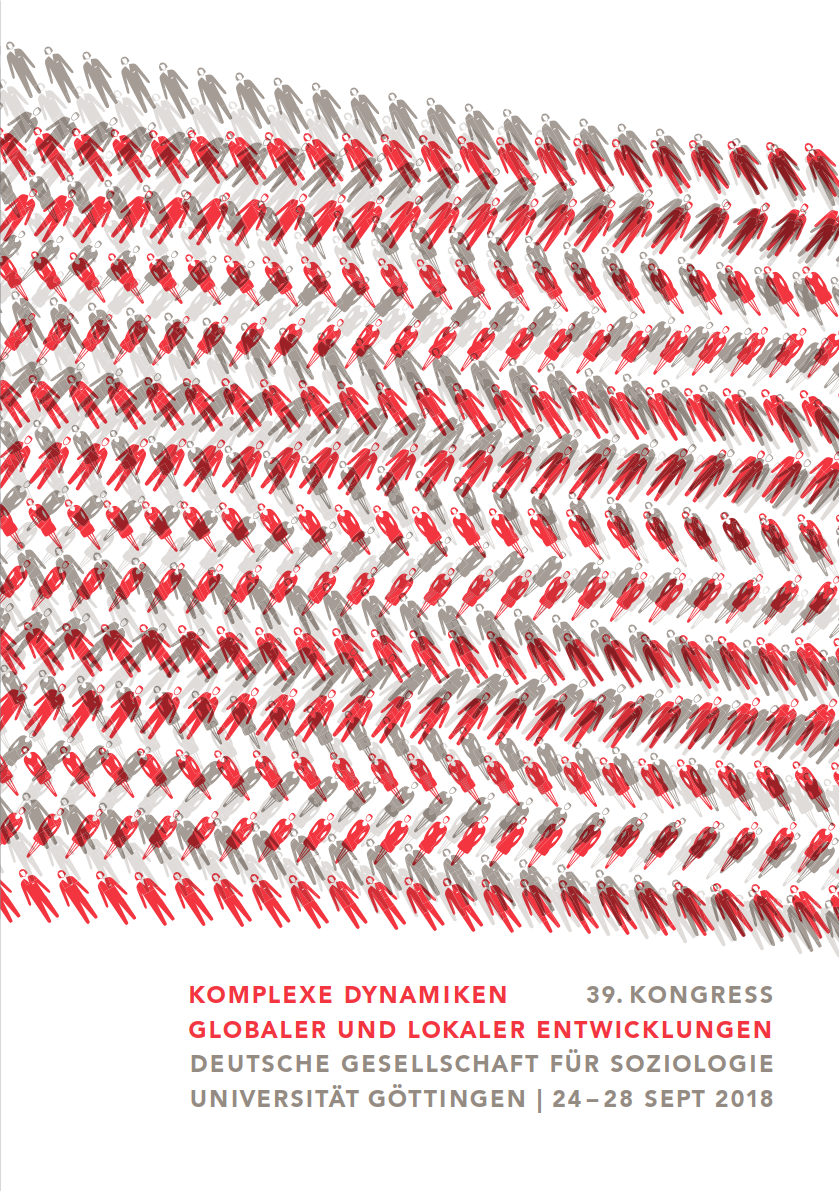Moderne und Rückständigkeit.
Die transformativen Auswirkungen von Diskursen der kolonialen Zeitlichkeit im China des 20ten Jahrhunderts.
Keywords:
Kolonialität, Kolonialismus, Zeitlichkeit, Moderne, Rückständigkeit, ChinaAbstract
Im folgenden Artikel werde ich knapp die Genese von Diskursen kolonialer Zeitlichkeit in China umreißen. Ich werde darauf eingehen, was koloniale Zeitlichkeit ist und warum ihre Erforschung für die postkoloniale Soziologie gewinnversprechend ist. Anschließend werde ich knapp darstellen, wie in China der Begriff der Moderne und Diskurse um Fortschritt und Modernisierung im Kontext des westlichen und japanischen Kolonialismus entstanden, und warum die Genese in diesem Kontext dazu führte, dass das Konzept der Moderne mit einem Element der Kolonialität – mit kolonialer Zeitlichkeit – aufgeladen wurde. Anschließend werde ich ebenso knapp umreißen, welche sozialen Auswirkungen die Verbindung von Moderne und kolonialer Zeitlichkeit in China hatte, indem ich die Performativität des Konzeptes in verschiedenen Reformversuchen und Diskursen in China anspreche.
References
Barlow, Tani E. 1997. Colonialism’s Career in Postwar China Studies. In Formations of Colonial Modernity in East Asia, Hrsg. Tani E. Barlow, 373–411. Durham: Duke University Press.
Buck-Morss, Susan. 2000. Hegel and Haiti. Critical Inquiry 26:821–865.
Césaire, Aimé. 1972. Discourse on Colonialism. New York NY: Monthly Review Press.
Chakrabarty, Dipesh. 1992. Postcoloniality and the Artifice of History: Who Speaks for “Indian” Pasts? Representations 37:1–26.
Chen, Xiaomei. 1995. Occidentalism. A Theory of Counter-Discourse in Post-Mao China. Oxford, New York: Oxford University Press.
Conrad, Sebastian, und Shalini Randeria, Hrsg. 2002. Jenseits des Eurozentrismus. Postkoloniale Perspektiven in den Geschichts- und Kulturwissenschaften. Frankfurt am Main, New York: Campus.
Cooper, Frederick, und Ann L. Stoler, Hrsg. 1997. Tensions of Empire. Colonial Cultures in a Bourgeois World. Berkeley: University of California Press.
Culp, Robert. 2006. Rethinking Governmentality: Training, Cultivation, and Cultural Citizenship in Nationalist China. The Journal of Asian Studies 65:529–554.
Duara, Prasenjit. 1995. Rescuing History From the Nation. Questioning Narratives of Modern China. Chicago: University of Chicago Press.
Fabian, Johannes. 1983. Time and the Other. How Anthropology Makes its Object. New York NY u.a.: Columbia University Press.
Greenhalgh, Susan. 2003. Science, Modernity, and the Making of China’s One-Child Policy. Population and Development Review 29:163–196.
Grosfoguel, Ramon. 2002. Colonial Difference, Geopolitics of Knowledge, and Global Coloniality in the Modern/Colonial Capitalist World System. Review 25:203–224.
Hanser, Amy. 2008. Service Encounters. Class, Gender, and the Market for Social Distinction in Urban China. Stanford: Stanford University Press.
Karl, Rebecca E. 2002. Staging the World. Chinese Nationalism at the Turn of the Twentieth Century. Durham NC u.a.: Duke University Press.
Koselleck, Reinhart, Hrsg. 2004. Futures Past. On the Semantics of Historical Time. New York, NY: Columbia University Press.
Kuo, Yapei. 2013. Temporality of Knowledge and History Writing In Early Twentieth-Century China. Liu Yizheng and a History of Chinese Culture. In The Challenge of Linear Time. Nationhood and the Politics of History in East Asia. Leiden Series in Comparative Historiography, Bd. 7, Hrsg. Viren Murthy und Axel Schneider, 277–292. Leiden: Brill.
Kwong, Luke. 2001. The Rise of the Linear Perspective on History and Time in Late Qing China. Past & Present 173:157–190.
Lu, Xiaoyu. 2018. Double Dissidents. The cognitive dissonance of overseas Chinese students. In: China Channel; online verfügbar unter: https://chinachannel.org/2018/06/01/double-dissidents/; letzter Zugriff: 29.01.2019.
Luo, Zhitian. 2005. Imperialism in China: The Evolution of Treaty Regime From the Cultural Perspective. Social Sciences in China 26:75–85.
Meinhof, Marius. 2017. Colonial Temporality and Chinese National Modernization Discourses. Interdisciplines 8:51–80.
Meinhof, Marius. 2018a. Contesting Chinese Modernity? Postcoloniality and Discourses on Modernisation at a Chinese University Campus. Postcolonial Studies: Online First. Verfügbar unter: https://doi.org/10.1080/13688790.2018.1507620; letzter Zugriff: 29.01.2019.
Meinhof, Marius. 2018b. Geplante Pluralisierung – Konsum, Sozialwissenschaft und die Erschaffung einer modernen Bevölkerung in China. In Aspekte des sozialen Wandels in China. Familie, Bildung, Arbeit, Identität, Hrsg. Björn Alpermann, Birgit Herrmann und Eva Wieland, 325–353. Wiesbaden: Springer VS.
Mühlhahn, Klaus. 2007. China und der westliche Imperialismus. In Kolonialkrieg in China. Die Niederschlagung der Boxerbewegung 1900–1901. Schlaglichter der Kolonialgeschichte, Bd. 6, Hrsg. Mechthild Leutner und Klaus Mühlhahn, 15–26. Berlin: Links.
Osterhammel, Jürgen. 1986. Semi-Colonialism and Informal Empire in Twentieth-Century China: Towards a Framework of Analysis. In Imperialism and after. Continuities and discontinuities, Hrsg. Wolfgang J. Mommsen, 290–314. London: Allen & Unwin.
Quijano, Anibal. 2000. Coloniality of Power, Eurocentrism, and Latin America. Nepantla: Views from South 1:533–580.
Quijano, Anibal. 2013. Coloniality and Modernity / Rationality. In Globalization and the Decolonial Option, Hrsg. Walter D. Mignolo und Arturo Escobar, 22–32. Hoboken: Taylor and Francis.
Ruskola, Teemu. 2008. Colonialism Without Colonies: On the Extraterritorial Jurisprudence of the U.S. Court for China. Law and Contemporary Problems 71:217–242.
Said, Edward W. 1978. Orientalism. 1. Aufl. New York NY: Pantheon.
Sala-Molins, Louis. 2006. Dark Side of the Light. Slavery and the French Enlightenment. Minneapolis: University of Minnesota Press.
Shih, Shumei. 2001. The Lure of the Modern. Writing Modernism in Semicolonial China, 1917–1937, Bd. 1. Berkeley: University of California Press.
Wang, Q. Edward. 2001. Inventing China Through History. The May Fourth Approach to Historiography.
Wilk, Richard. 1994. Colonial Time and TV Time: Television and Temporality in Belize. Visual Anthropology Review 10:94–102.
Yan, Junchen, und Marius Meinhof. 2018. The Other Chinese: Identity Work and Self-Orientalization of Chinese Host Country Nationals in Multinational Corporations. Social Identities 24:666–683.
Zhang, Li. 2006. Contesting Spatial Modernity in Late-Socialist China. Current Anthropology 47:461–484.
Zhu, Lili. 2017. From »the Art of War« to »the Force of War.« Colonialism and the Chinese perception of War in Transition. Interdisciplines 8:27–50.
Downloads
Published
How to Cite
Issue
Section
License
Beiträge im Verhandlungsband des 39. Kongresses der Deutschen Gesellschaft für Soziologie werden unter der Creative Commons Lizenz "Namensnennung-Nicht kommerziell 4.0 International (CC BY-NC 4.0)" veröffentlicht.
Dritte dürfen die Beiträge:
-
Teilen: in jedwedem Format oder Medium vervielfältigen und weiterverbreiten
-
Bearbeiten: remixen, verändern und darauf aufbauen
unter folgenden Bedinungen:
-
Namensnennung: Dritte müssen angemessene Urheber- und Rechteangaben machen, einen Link zur Lizenz beifügen und angeben, ob Änderungen vorgenommen wurden
-
Nicht kommerziell: Dritte dürfen das Material nicht für kommerzielle Zwecke nutzen


